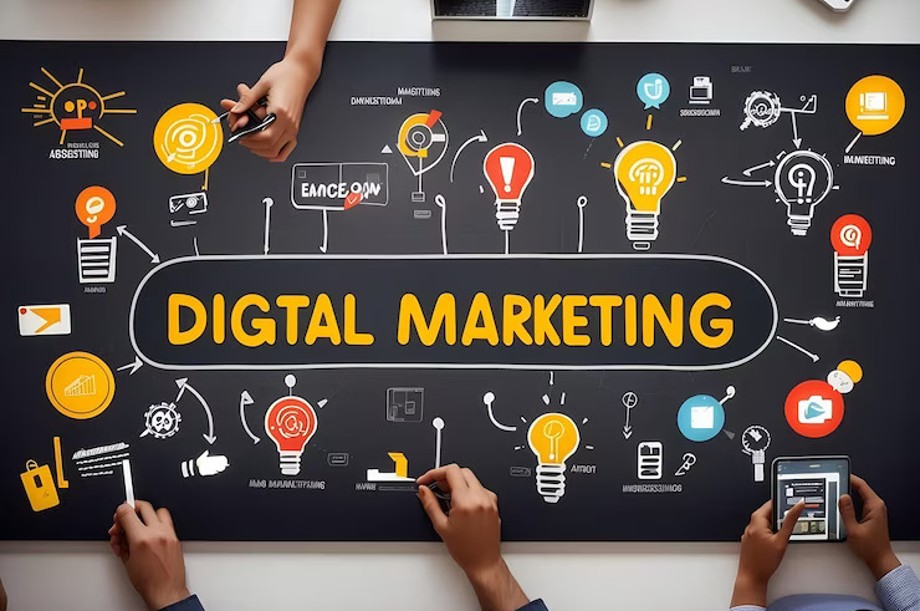The Evolution of Digital Marketing: Navigating the Digital Landscape
Introduction
In our contemporary world, where over 170 million individuals engage with social media regularly, a fundamental understanding of Digital Marketing has become a requisite for every working professional. In essence, Digital Marketing encompasses the promotion of products through internet-based or electronic media channels. As defined by the Digital Marketing Institute, it involves the utilization of digital platforms to market products and services to specific consumers and businesses.
Digital Marketing's omnipresence stems from the fact that people are increasingly consuming digital content on a daily basis. The inevitable shift from traditional to digital marketing platforms is underway, with the latter proving more cost-effective and capable of reaching a broader audience in a shorter time frame. Technological advancements, particularly the proliferation of tablets, phones, and computers, have catalyzed this transformation, causing a significant migration of consumers from traditional to digital platforms.
What is Digital Marketing?
Digital Marketing encompasses the use of various digital channels by businesses to promote and advertise their products and services to consumers. These channels include websites, mobile devices, social media platforms, search engines, and other electronic mediums.
The Success of Digital Marketing
The success of Digital Marketing is palpable in today's digitally-driven world. As digitalization continues to redefine consumer behavior, a growing number of individuals prefer online shopping for its convenience. Thus, the advantages of promoting businesses online are manifold, especially considering the pervasive presence of the target audience in the digital realm.
Benefits of Digital Marketing
The benefits of Digital Marketing are substantial. Notably, it allows businesses to reach a larger audience in a more compressed time frame compared to traditional marketing methods. The attrition of traditional marketing agencies is evident, as people increasingly embrace digital platforms such as tablets, phones, and computers.
A Glimpse into the History of Digital Marketing
The term "Digital Marketing" made its debut in the 1990s, coinciding with the rise of the internet and the development of the Web 1.0 platform. Web 1.0 facilitated information retrieval but lacked the capability for users to share information online. During this period, marketers were uncertain about the efficacy of digital platforms, given the limited deployment of the internet.
A watershed moment occurred in 1993 with the launch of the first clickable banner, followed by HotWired's acquisition of banner ads for advertising. This marked the initiation of the digital era in marketing. The subsequent year, 1994, witnessed the entry of new technologies into the digital marketplace, alongside the launch of Yahoo, which garnered close to 1 million hits within its inaugural year. This event prompted companies to optimize their websites for improved search engine rankings.
The year 1996 saw the introduction of additional search engines and tools such as HotBot, LookSmart, and Alexa. In 1998, Google was born, challenging the existing players in the market. Microsoft introduced the MSN search engine, and Yahoo enhanced its web search capabilities. The burst of the internet bubble in 2000 led to the dominance of major search engines like Google, with smaller players either left behind or wiped out.
The digital marketing landscape experienced significant growth in 2006, with search engine traffic reaching approximately 6.4 billion in a single month. Microsoft, not wanting to lag behind, launched Live Search to compete with Google and Yahoo. The advent of Web 2.0 marked a shift from passive user interaction to active participation. Users began to engage with each other and businesses on a more dynamic level.
The emergence of social networking sites, starting with MySpace and later Facebook, presented new opportunities for businesses to market their products and brands. This trend signified a paradigm shift in business promotion, necessitating novel approaches to capitalize on the potential of social networking platforms.
Another crucial milestone in the digital marketing industry was the introduction of cookies. Advertisers sought innovative ways to leverage this technology, initially using cookies to track browsing habits and user patterns. Over time, cookies evolved to provide marketers with diverse methods for collecting user data.
Presently, products marketed digitally are accessible to consumers around the clock. Facebook, Twitter, Pinterest, and Instagram have become integral platforms for digital marketing, with significant percentages of marketers utilizing these channels to connect with their target audience.
In conclusion, the history and evolution of digital marketing reflect a transformative journey from the early days of uncertainty to the present era of digital dominance. As technology continues to advance and consumer behaviors evolve, digital marketing will undoubtedly play an increasingly pivotal role in shaping the future landscape of business promotion and brand visibility.


Comments
Post a Comment